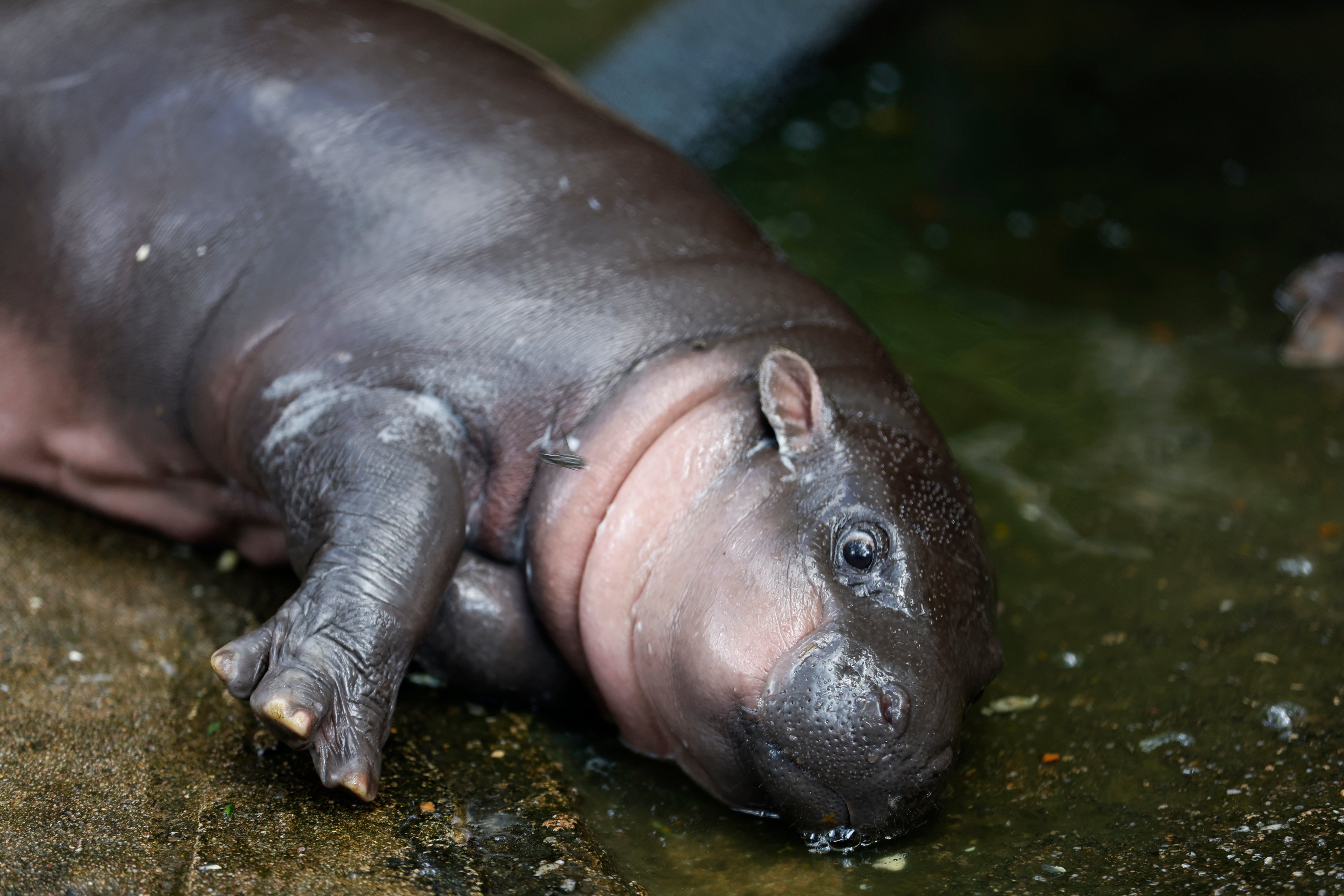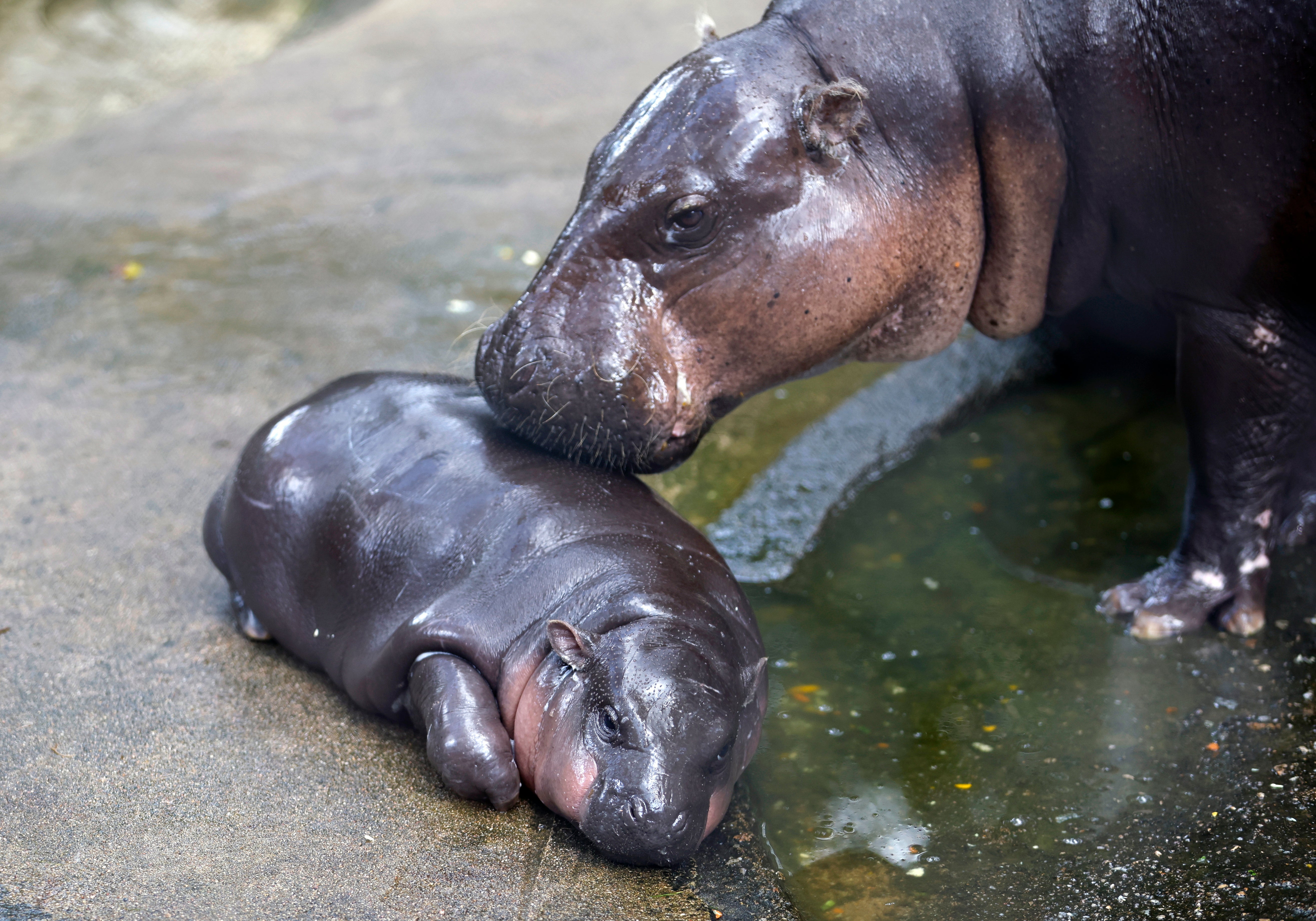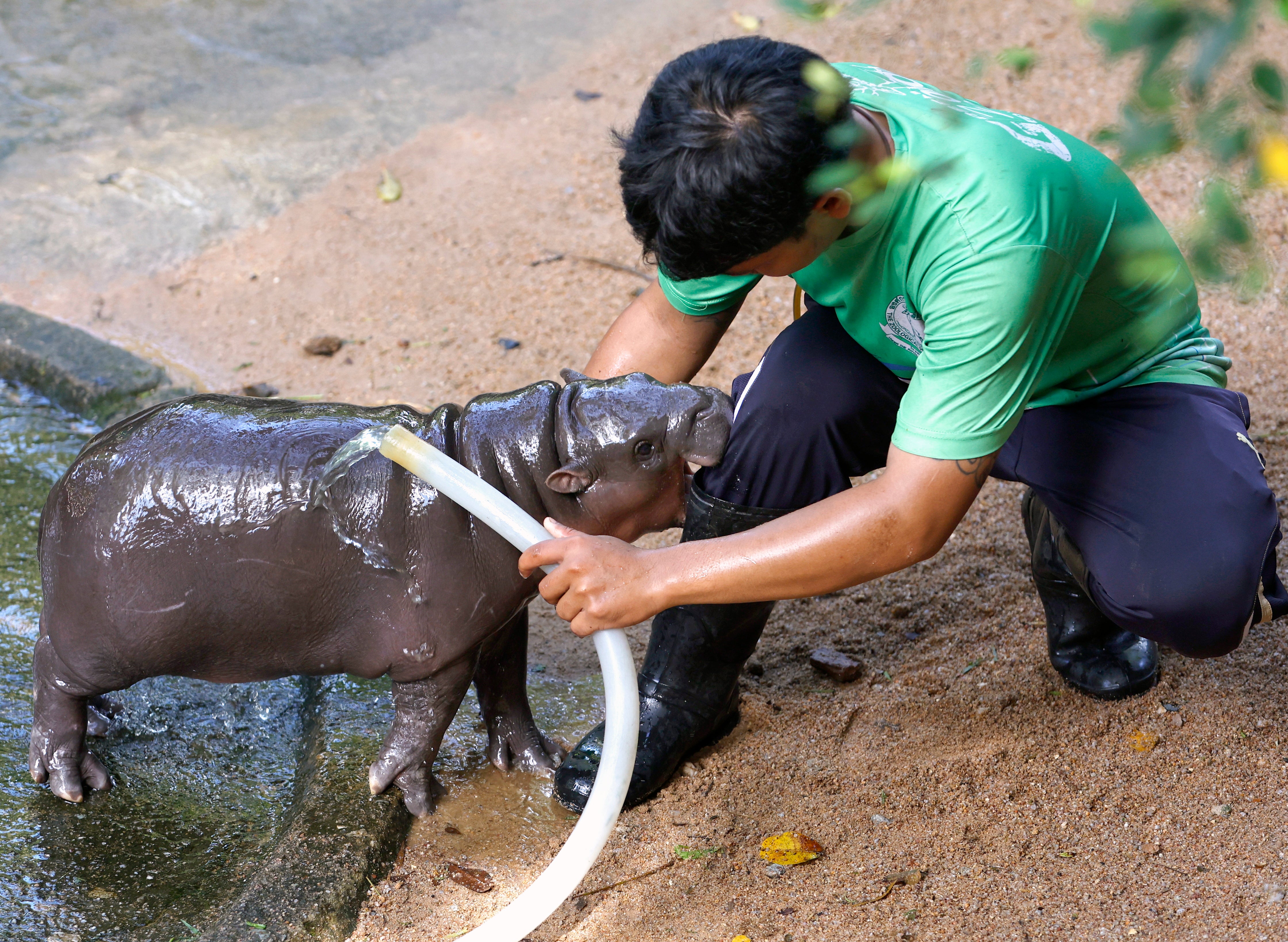Thailand rejects criticism over pygmy hippo Moo Deng’s ‘lifetime of confinement’
Peta has criticised the zoo for ‘depriving’ Moo Deng of her natural right to freedom
Thailand has hit back at People for the Ethical Treatment of Animals (Peta) after it claimed that a baby pigmy hippopotamus, who has become famous because of her playful nature, would be subjected to a “lifetime” of “confinement”.
Moo Deng, which translates to bouncy pork in Thai, was born in confinement at the Khao Kheow Open Zoo in Chonburi in July. She became the internet's latest obsession after the zoo posted videos and photos online of her splashing about in the water and playfully biting the keeper.
Moo Deng's popularity has drawn visitors from near and far, with some hopping on an 18-hour flight from the US to see the internet celebrity in person. The pit where Moo Deng lives with her mother, Jona, has been packed since, prompting zoo officials to limit viewing time to five minutes per visitor and launch a 24-hour live stream.
Businesses quickly capitalised on her popularity, using her image to sell makeup, souvenirs and footwear. The zoo has earned 19.2m baht (£445,712) between 1 and 25 September from selling tickets, according to reports.

Peta criticised the zoo for allegedly depriving Moo Deng of her natural right to freedom. "There’s nothing cute about a baby being born in captivity," said the group's senior vice president Jason Baker.
"Hippos belong in the wild, but Moo Deng will never live outside a cage. She faces a lifetime of confinement ...," he added.
The pygmy hippo, native to West Africa, is an endangered species, with only 2,000-2,500 adults left, according to the International Union for Conservation of Nature. Their numbers are decreasing due to hunting for bushmeat and habitat destruction.
"Animals do not exist for our entertainment. Breeding them for public display perpetuates their suffering," Mr Baker said, calling for prioritising conservation efforts that protect animals in nature.

Zoo director Narongwit Chodchoi rejected the allegations, saying the facility cares for over 2,000 animals, including Moo Deng, and ensures their welfare and quality of life. The zoo has limited visitor numbers to 30 to 50 people per round to avoid overcrowding, he told local reporters.
The Thai Society for the Prevention of Cruelty to Animals (TSPCA) similarly hit back at Peta for using “outdated” and “inaccurate information”.
Sathit Pratchaya-ariyakun, Secretary of the TSPCA, said Peta's assessment of Moo Deng was based on “incomplete” information. He pointed to a previous Peta boycott campaign in 2020 which exposed the usage of pigtailed macaques by farms to pick coconuts.
He said Thailand’s coconut industry suffered greatly after British retailers removed coconut products from their shelves.

Mr Sathit said some of Peta's information was valid but stressed certain details came from only one side of the story, according to the Thaiger newspaper. He reassured Moo Deng was well taken care of at par with international standards.
The Khao Kheow Open Zoo previously faced backlash in 2021 for its elephant swimming shows. It featured performances where elephants swam, danced, and performed tricks while visitors watched through a glass enclosure. The zoo defended the shows, despite social media outrage calling it an example of animal cruelty.
Some social media users criticised Peta's comments, accusing the US-based group of making Thailand "look bad".
“So, does that mean animals in zoos all over the world should be released," asked a Facebook user.
Others sided with Peta for "bothering" Moo Deng constantly to get content for social media.
Peta responded to the backlash, saying they "speak up for all animals".
"We have been campaigning in Thailand and around Asia for decades, doing undercover investigations and speaking up for those in cages."
Join our commenting forum
Join thought-provoking conversations, follow other Independent readers and see their replies
Comments
Bookmark popover
Removed from bookmarks